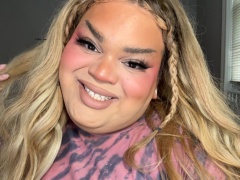
The Australian federal government said Tuesday that it will introduce legislation this year that bans children from accessing social media. The exact age has yet to be determined.
The plan, announced by Prime Minister Anthony Albanese, aligns with moves by other governments around the Asia-Pacific region seeking to rein in online media and social media, in particular.
Many in the region are concerned that social media platforms are causing addictive behavior, enabling bullying, gambling and facilitating cybercrimes. Albanese called the impact of social media on young people a “scourge.”
Venu Legal Fight Is about More Than FuboTV: What’s at Stake for the Entire Industry

A24's Doc 'The Sixth,' about the Terror of Jan. 6, Is Essential Viewing. So Why Are the Directors Struggling to Get It Seen?
Governments in Malaysia, Singapore and Pakistan have all sought to move against social media companies in the last months, though reasoning and methods differ. And, this week, Malaysia halted its plan to re-route internet traffic and implement a ‘kill switch’.
Banning children from social media has been the official policy of both parts of the governing coalition (the Liberal Party of Australia and the National Party of Australia) since June.
Albanese said that the government is looking at introducing a minimum age of 14-16, and that he personally prefers 16 to be the youngest age at which access to sites such as Instagram and Tiktok would be permitted.
The federal government is currently testing different methods for age verification and will decide on the minimum age figure after testing is completed. It says it will develop legislation in conjunction with the country’s states in order to avoid different local rules. The state of South Australia, which includes Adelaide, has been the most active in the matter and recently proposed rules that would force social media companies to ban children under 13 from their sites.
“The evidence shows early access to addictive social media is causing our kids harm [..] This is no different to cigarettes or alcohol,” said South Australian state Premier Peter Malinauskas.
Moves to control access to social media are certain to face opposition in some quarters on the grounds that controls would likely infringe on privacy. The social media providers are also unlikely to be happy with the added costs and responsibility of policing the sites, pages and posts.
Australia has previously legislated in ways that the platforms disliked. Introduction of its News Media Bargaining Code, designed to get platforms to pay local news providers for their content, caused Facebook to briefly withdraw from the country. Since then, the platforms have largely navigated around it.
Australia’s regulators have not had an easy time standing up to overseas tech firms, either. In April, the federal internet safety watchdog, known as the eSafety Commissioner, sought removal of video footage of a knife attack at a Sydney church, which the government had designated as a terrorist act. The commissioner obtained a temporary injunction against X (formerly Twitter) when the platform refused to block the footage outside Australia, but a court refused to extend the temporary bar.
X owner Elon Musk called the court decision a victory for free speech and an open internet. “What is to stop any country from controlling the entire Internet?”Musk said on X. His stance outraged Albanese who accused Musk of “arrogance,” acting “above Australian law” and disregarding a bipartisan position in the country.
At the end of August, the Malaysian government set out proposals for an annual licensing regime for social media companies with more than 8 million users. It would also have imposed criminal liability on service providers for user-generated content, introduced stringent content moderation obligations and require religious content to be pre-approved by the Department of Islamic Development.
In a country which has a long history of censorship of films, TV and other media on religious and political grounds, the policy was opposed by those fearing that the government would use the laws to silence its critics. The proposed re-routing was also opposed by workers in the country’s digital economy and on Sunday the government did a U-turn.
“Taking into account the views expressed through Malaysian Communications & Multimedia Commission’s engagement sessions, as well as from the general public, I have requested [the commission] not to proceed with the implementation,” said Communications Minister Fahmi Fadzil late on Sunday.
In Singapore, the online Criminal Harms Act, passed by Parliament last year, will require social media sites and messaging servicesto implement systems to detect scams and malicious activities by the end of 2024. They will also have to submit annual reports to authorities and identify sellers deemed as risky. Facebook and Carousell, a local marketplace, accounted for 70% of reported e-commerce scams, according to the Ministry of Home Affairs.
In Pakistan, national security grounds are being invoked as the reason for potentially massive changes to internet access. But how far measures have gone is currently unclear.
In August, the cabinet told Parliament that it had installed a web management system, which allows the authorities to block content, monitor and control internet traffic “at a gateway level.”
A marked slowdown in internet speeds was soon reported by the Wireless and Internet Providers Association. And many users complained that the Whatsapp messaging service, which is hugely popular for social and business purposes, was unavailable or no longer able to transfer documents, images or voice notes.
The Pakistan government has repeatedly denied that it is installing a national firewall, similar to that in China. And the Pakistan Telecommunication Authority instead blamed August’s internet slowdown on problems with two submarine cables.
However, like China, Pakistan now requires registration by all users of virtual private networks (VPNs), software which allow users to pass their communications through a secure, private channel and change their online location.
Pakistan has also blocked Musk’s X since February this year.






